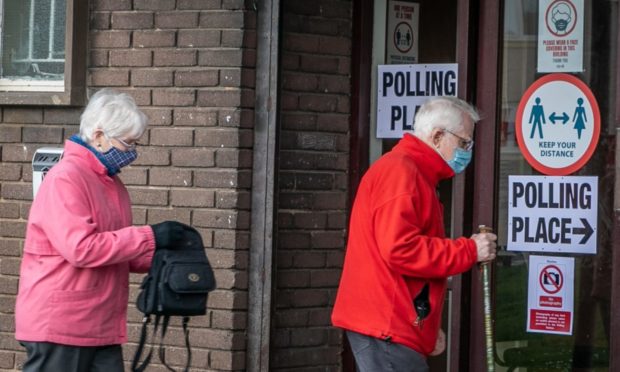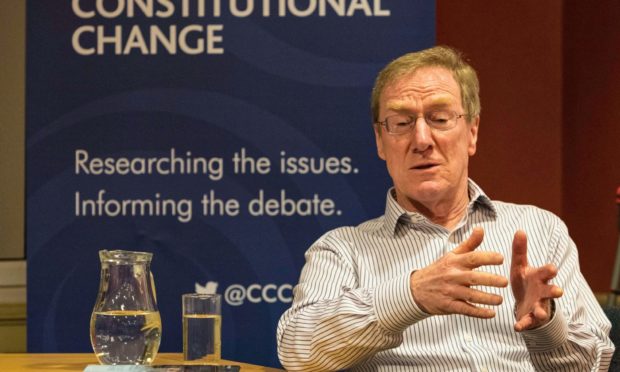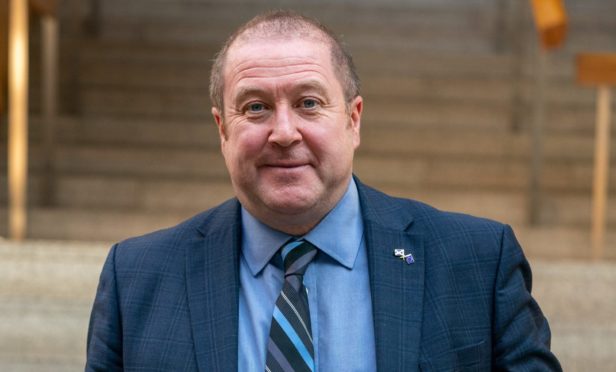Holyrood and Westminster could be on a collision course over proposed legislation that includes controversial plans to ask voters for photographic ID.
The so-called Electoral Integrity Bill has been named as one of nine draft laws from the UK Government’s Queen’s Speech that are expected to require the “consent” of MSPs.
The Bill is likely to include plans to require voters to show photographic identification at polling stations, to try to clamp down on fraud.
However, the SNP, Labour, Greens and Liberal Democrats have all raised concerns about the move, amid fears it could deter many from casting their ballots, including voters who are younger or have lower incomes.
It is understood that the voter ID requirement is not the section of the Bill that means it would need a so-called “legislative consent motion (LCM)” from Holyrood, because it would only apply to UK general elections, which are reserved to Westminster.
However, the strength of opposition to the plans could result in a debate over any request for MSPs to rubber-stamp the Westminster legislation.
It could also expose fresh uncertainty about LCMs, also known as the Sewel Convention, which applies when the UK Parliament wants to legislate on a matter within the devolved competence of the Scottish Parliament, National Assembly for Wales or Northern Ireland Assembly.
Under the terms of the convention, the UK Parliament will “not normally” do so without the relevant devolved institution having passed an LCM.
Professor Michael Keating, chair in Scottish politics at Aberdeen University, said it had only become an issue in recent years.
“Most LCMs are not controversial at all, but there have been a series of controversial ones over Brexit, and for the first time the UK Government has started ignoring the refusal of legislative consent,” he said.
“Notably, the sign-off of the Withdrawal Agreement Bill for Brexit, which was refused legislative consent by all three devolved legislatures, but of course it went ahead anyway.
“It leaves the legislative consent motion in a very bad place, and it really started with the original EU Withdrawal Bill.
It leaves the legislative consent motion in a very bad place, and it really started with the original EU Withdrawal Bill.”
“That’s the one that went to the Supreme Court, with the Scottish Government and some parties from Northern Ireland said it required legislative consent, back in 2017, and the Supreme Court said ‘well, the Sewel Convention is just a convention anyway, it’s mainly political’, which effectively trashed it.
“What it meant was that there was no mechanism for enforcing it whatever.”
The former director of the Centre on Constitutional Change added: “When it had never been used for the best part of 20 years, there was a certain mystery about it – nobody wanted to go there.
“Most government just worked around it, ‘let’s not try and provoke things’.
“But once it is used once, and you get away with it, then it becomes easier to do it again. And once you’ve done it several times now, it becomes quite banal.”
Answering a Holyrood question on the Queen’s Speech and LCMs earlier this month, former parliamentary business minister Graeme Dey said: “The Scottish Government will consider the content of all Bills before making its recommendation to the parliament on legislative consent.
“It will then be for the Scottish Parliament to determine whether to give or withhold consent.
“It is possible that legislative consent may be required for other UK Bills and those will be drawn to the attention of the parliament as they arise.”
The Scottish Government will consider the content of all Bills before making its recommendation to the parliament on legislative consent.”
Orkney and Shetland MP Alistair Carmichael MP is among those concerned about the Voter ID proposals.
“This is a blatant attempt by the Conservatives to suppress voting. It’s straight out of the Trump playbook,” the Lib Dem said.
“To solve a non-existent problem they want to require proof of identity at polling stations.
“It’s a move that would exclude people from the democratic process and discriminate because experts have identified vulnerable groups who are less likely to have ID.”



